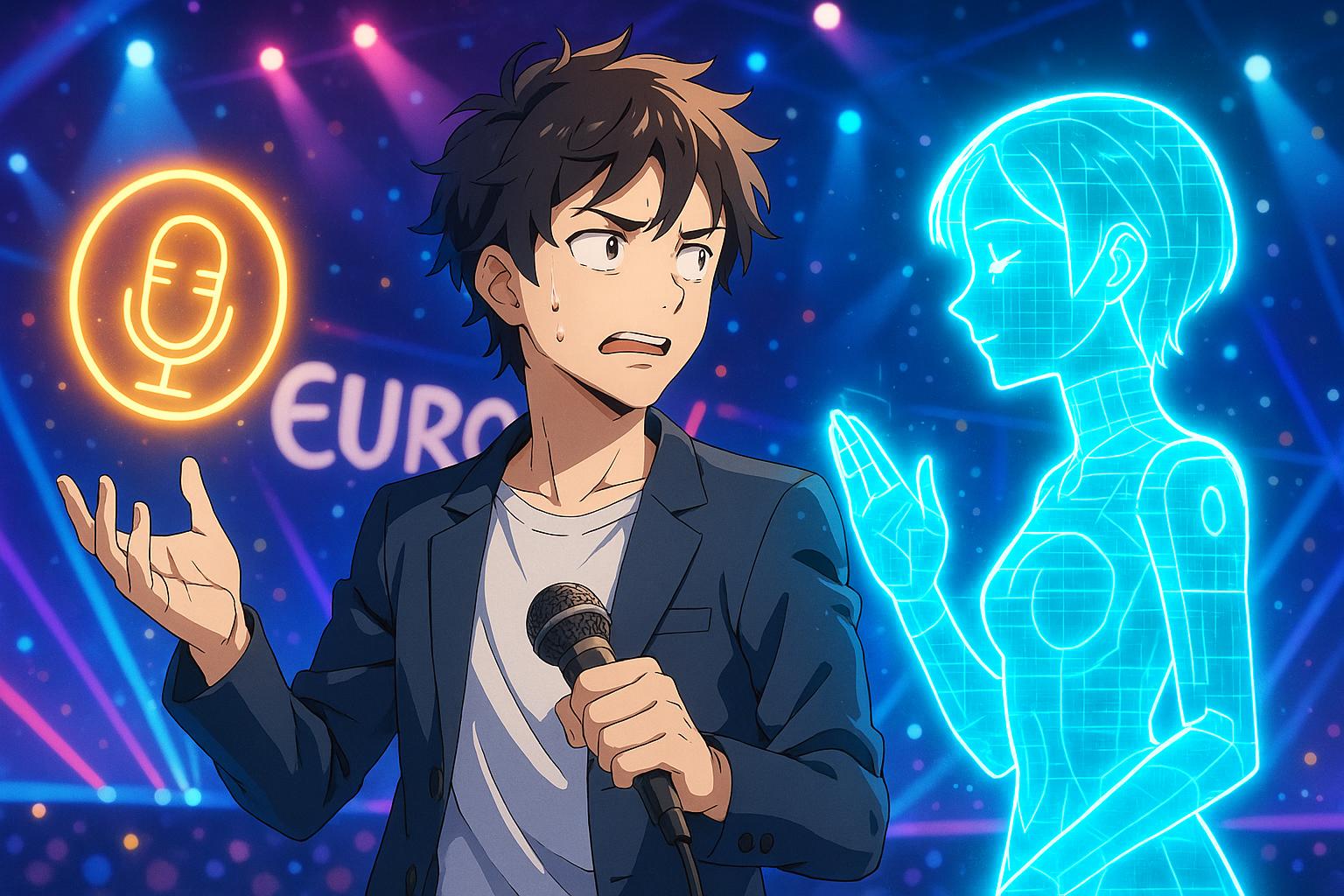The landscape of music is undergoing a profound transformation due to the rise of artificial intelligence, and the Eurovision Song Contest, a cultural fixture championing human creativity, is caught in the crossfire. With controversies surrounding AI-generated entries, the future of this celebrated competition hangs in a precarious balance between innovation and authenticity.
In January 2025, Moldova's selection for Eurovision became embroiled in scandal when an entry by the Eblansh Band was abruptly withdrawn due to a purported band member's illness. However, investigations revealed that the band was a fabricated entity created by Ukrainian pranksters to test the discerning abilities of the Moldovan jury in detecting artificial content. The song, titled “O, Moldova mea dragă!” (Oh, my dear Moldova!), was entirely AI-generated. This incident highlighted a glaring deficiency in the selection process, as the entry had passed preliminary screening and was formally accepted into the competition. Moldova's Head of Delegation, Daniela Crudu, acknowledged that the entries had not been assessed for artificial intelligence content prior to jury evaluation. The fallout from this hoax contributed to Moldova’s eventual withdrawal from the Eurovision 2025 contest, as local broadcaster Moldova 1 cited economic, administrative, and artistic hurdles as barriers to participation.
San Marino's approach to AI-generated music presents a stark contrast. In their national selection, Una Voce per San Marino, the tiny European microstate openly embraced technology by collaborating with Casperaki, a company specialising in AI music production. This innovative partnership produced four AI-crafted songs that competed for a spot in the national final. Such openness raises essential questions about the role of technology in creative processes. If a small nation can publicly experiment with AI, what implications does this have for other countries within the Eurovision framework?
Interestingly, the European Broadcasting Union (EBU), which organises Eurovision, currently lacks a specific policy addressing AI-written songs. Discussions within the EBU have included the possibility of banning AI-generated entries altogether, reflecting concerns about preserving the contest's authenticity. Jean-Philip de Tender, an EBU deputy director, has articulated fears that excessive reliance on AI might dilute the raw emotional essence that has long defined Eurovision. Despite these concerns, no definitive ban or regulatory guidance has been implemented for upcoming contests.
The influence of AI on mainstream music is already palpable, with notable examples like Japan’s “YAJU&U,” which achieved significant chart success despite its algorithmic origins. The track’s acceptance by the audience points to a burgeoning acceptance of AI-generated music, primarily when it is transparently presented. This phenomenon invites a broader conversation about whether the essence of a song lies in human experience or can emerge from algorithmic processes.
The introduction of AI into songwriting has sparked debate within the music community. Some veteran artists—like Nick Cave—have vehemently condemned the use of AI in creative works, framing it as a threat to authentic artistic expression. In contrast, figures like Daniel Bedingfield advocate for adaptation, suggesting that artists must embrace new technologies or risk obsolescence. This clash between preserving artistic integrity and embracing technological advancement underscores a significant dilemma for creators: should they collaborate with AI, thus redefining their creative processes, or stick to traditional songwriting methods?
Eurovision has long relied on collaborative songwriting environments, such as professional camps where multiple writers contribute to a single entry. If pop songs with numerous human collaborators are deemed genuine, one must question whether AI-assisted tracks are inherently less authentic. After all, fans have historically accepted formulaic pop music crafted by large teams. However, the critical distinction remains: AI lacks the human experience and emotion that underpin evocative songwriting.
As the music industry navigates this evolving landscape, ethical concerns surrounding AI-generated compositions intensify. Questions surrounding authorship and royalties loom large: should credit be given to the algorithm’s creator, or the individual who prompted its use? Moreover, what happens to the emotional core of songwriting if no human touch is present? These questions are especially pertinent within the context of Eurovision, a contest celebrated for its capacity to convey genuine emotion and connection through music.
The fear of AI commodifying music is pervasive, with worries that more artists might resort to homogeneous formulae rather than drawing on personal experiences for inspiration. This could ultimately lead to a dilution of the unique qualities that make Eurovision entries special, comparable to past memorable songs like Norway’s “Fairytale” or Sweden’s “Madness of Love.”
To safeguard the contest's integrity, the EBU must actively consider clarifying its rules regarding AI-generated content. Proposals for mandatory disclosures of AI involvement in submissions or limits on machine-generated contributions could help maintain Eurovision's emphasis on human storytelling. Ignoring the potential implications of AI in music is no longer feasible; the conversation must evolve to include broadcasters, songwriters, and audiences alike.
As Eurovision's motto asserts, "Unite by Music," the future of this beloved contest rests on a delicate balance between the innovations of technology and the enduring value of authentic human expression. The challenge is not merely about the mechanics of songwriting but an exploration of what it means to create art in an era increasingly characterised by algorithms and automation. In the grand tapestry of music, will the human spirit still have its melody, or will it be overshadowed by a machine's ghostly echo?
Source: Noah Wire Services
